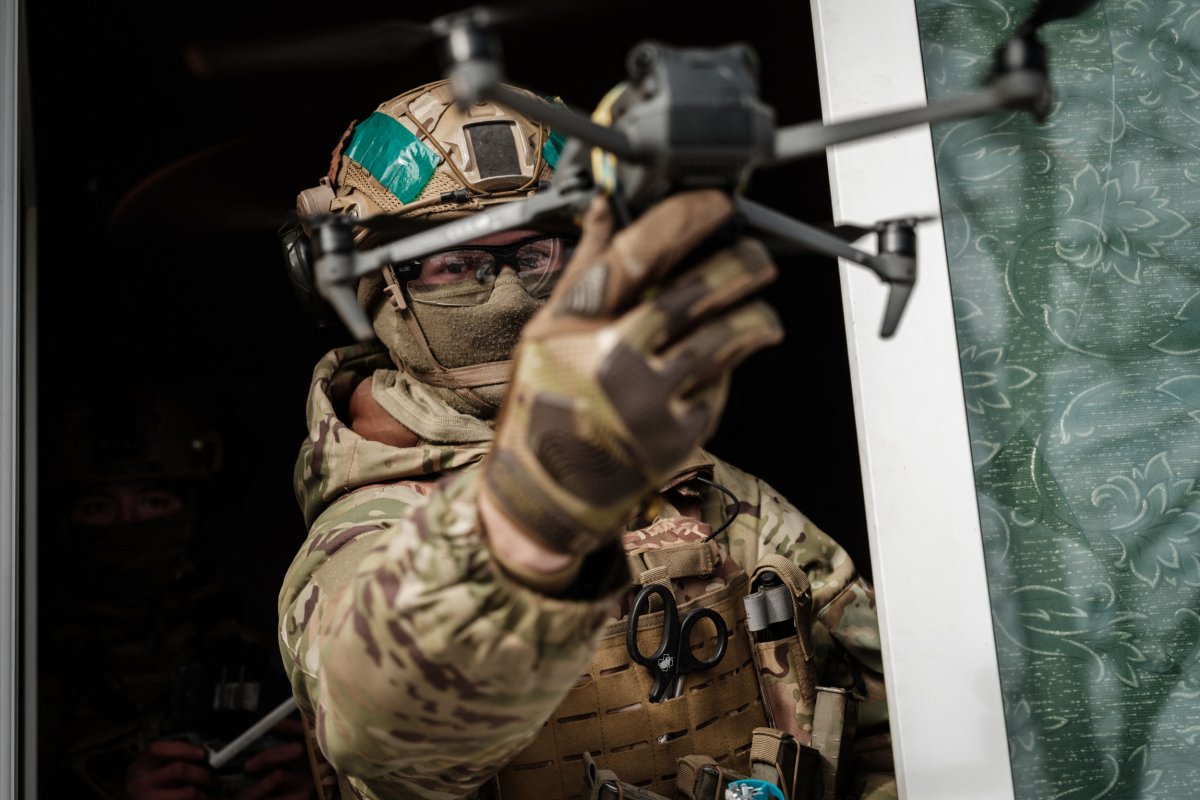Criticism of democracy is not new: thinkers from Plato to Socrates to Voltaire to Hobbes have expressed such sentiments, united by a common skepticism that average people possess enough of a clue to be trusted with any influence.
Recent election results in countries as diverse as the United States, Britain, and Israel certainly suggest that the skeptics have a point. But there is not much to do with this information. Those who note it are derided as "elites"—a term that has somehow become derogatory; young people seem to just be checking out.
The defense of democracies has come down to the hypotheses that they generally don't initiate pointless wars, and that mistakes are reversible because bums can be thrown out. Dictatorships, it is said, will bend toward idiocy in the end. These are not implausible theories, but also not self-evident. In our unsettling times, amid deep ideological struggle, proof points are required.

And that is one way—to be precise, the only way—in which Russian President Vladimir Putin has been useful. The sheer imbecility that Putin has imposed on Russia is a shocking spectacle as history rarely has beheld. That he cannot be removed in a democratic vote—for Russia has evolved from fake-democracy to dictatorship under his benighted rule—is really all we need to know.
Putin has been doing damage for 23 years since he succeeded Boris Yeltsin. It is easy to forget that Russia was considered a "developing" democracy back then—imperfect, corrupt and still riddled with KGB goons and nomenklatura apparatchiks—but not exactly fake. Putin won early plaudits for restoring some order, buoyed by a fortuitous commodities boom. He could have walked away as a decent post-Communist leader, even a welcome sober contrast to the shambolic Yeltsin.
But in Putin's determination to cling to power he took on an increasingly diabolical cast—a phenomenon with an ignoble history in other sad corners of the world. Soon Russia became known as a place where the judges are cowed, the media is domesticated, pesky journalists are dispatched, opposition figures are disappeared, and insubordinate industrialists are jailed. All that was par for the course in authoritarian circles—Fidel Castro, Robert Mugabe, and Ferdinand Marcos all tried versions of it in Cuba, Zimbabwe, and the Philippines, respectively. Their attempts were lacking only in the colorful aesthetic of underwear poisonings and irradiated turncoat spies living in foreign lands.
Where Putin really earns his stripes as his generation's leading argument for democracy is with the Ukraine war, now approaching its one-year mark.
The very idea was breathtakingly absurd: the leader of the world's largest landmass by far—stretching across 11 time zones and almost twice the size of China and the United States—decided to gamble all and risk destroying the world to grow a little bit larger.
This belief-beggaring decision was based on a notion that Kyiv is a natural part of Russia because of historical ties and linguistic affinity (which might also attach Brussels to France, Oslo to Sweden, Damascus to Iraq and Toronto to the United States). This argument was bolstered with a story about how Ukraine's Jewish president is heading up a "Nazi" regime.
As is famous by now, nothing has gone according to plan. Kyiv has not fallen, and Russia gains are, while not inconsiderable, limited to the country's east and south. Ukraine's leader, President Volodymyr Zelensky, has famously stood his ground in his capital and become a darling of the free world—a veritable anti-Putin whose place in history is well assured.
Putin, meanwhile, will be remembered not only as a butcher but as the first leader to openly break the taboo on threatening the use of nuclear weapons—something that didn't even happen during the 1962 Cuban Missile Crisis.
Most of the criticism and anger have centered around the damage the invasion has done to Ukraine. At least 100,000 soldiers and 7,000 civilians have been killed and many more wounded and maimed. Wide urban swaths have been laid waste amid incalculable infrastructure damage, and the cost to the economy has been estimated at $700 billion—more than three times the country's GDP. There are real fears of an accident at Zaporizhzhia, the largest nuclear plant in Europe, now under Russia's unreliable control.
The Ukrainian situation is heartbreaking and extreme, but not conceptually extraordinary. Countries and populations have suffered cruelly throughout history at the hands of maniacal invaders, from Napoleon to Genghis Khan.
What is truly unbelievable is the damage to Russia itself. Future historians will be aghast.
- The U.S. estimates at least 100,000 Russian troops have been killed in the war (double the American toll over a decade in Vietnam), with some estimates almost three times higher. Russia has also lost thousands of tanks and at least 100 helicopters.
- In utterly failing to subdue a far weaker ally (or even maintain 40-mile supply lines), Russia has shattered its own reputation for being militarily competent. That's devastating for Russia's desire to project power around the globe.
- The West no longer is willing to be dependent on Russian energy. That's a major inconvenience for Russia, which until 2022 was supplying Europe with about 40 percent of its natural gas—a huge source of hard currency. It will take a while for Europe to wean itself completely of this dependency, but that is decidedly the direction. Europe would never have gone out of its way to seek alternatives if not for Putin. Germany believed trade would draw Russia into the democratic fold, all by itself.
- Russia has created its own dependency on fickle and problematic partners like China (as a client) and Iran as a supplier of hardware like drones.
- Russia has been decisively positioned as a bad-faith player in the world—one that will weaponize energy supplies, attack other countries and produce absurd lies without hesitation (beginning with the strenuous denials in the weeks before the invasion that anything was imminent).
- Although economic sanctions are not as effective yet as the West might have hoped (GDP may decline by only 3-4 percent), the war has done great damage to his economy's long-term prospects. It will certainly remain isolated from the Western economies for as long as Putin is in power, and probably well beyond.
- Thousands of Russians, and sometimes entire companies, are fleeing Russia and going not only to Europe but to places like Georgia, Moldova, and Armenia—and even faraway Israel.
- Though ostensibly Putin wanted to keep Ukraine out of NATO, he not only increased the chances that this happens, led to other countries' wanting to join as well, and also exposed the fuzziness of membership—as Ukraine has been assisted by the alliance anyway. It now looks like NATO countries may start sending Ukraine warplanes as well.
- The war has put paid to any notions that Ukrainians—even the Russian speakers among them—want anything to do with Russia. Moreover, other countries of the former USSR that once flirted with Russia, like Moldova and Kazakhstan, and also edging away.
But in the grander scheme of things lies an outcome on a higher plane: Putin's war has revealed once more that autocracies, rather than being efficient because of command and control, eventually will do the most idiotic, suicidal things.
"In nonsense is strength," wrote Kurt Vonnegut, sarcastically, in Breakfast of Champions. Despots like Putin take this maxim seriously and live by it. The test, for enslaved populations, is how long they'll bow before them. Even though many Russians are kept in the dark, the truth should by now be rather clear to most.
Dan Perry is managing partner of the New York-based communications firm Thunder11. He is the former Cairo-based Middle East editor and London-based Europe/Africa editor of the Associated Press. Follow him at twitter.com/perry_dan
The views expressed in this article are the writer's own.
Uncommon Knowledge
Newsweek is committed to challenging conventional wisdom and finding connections in the search for common ground.
Newsweek is committed to challenging conventional wisdom and finding connections in the search for common ground.
About the writer
To read how Newsweek uses AI as a newsroom tool, Click here.






